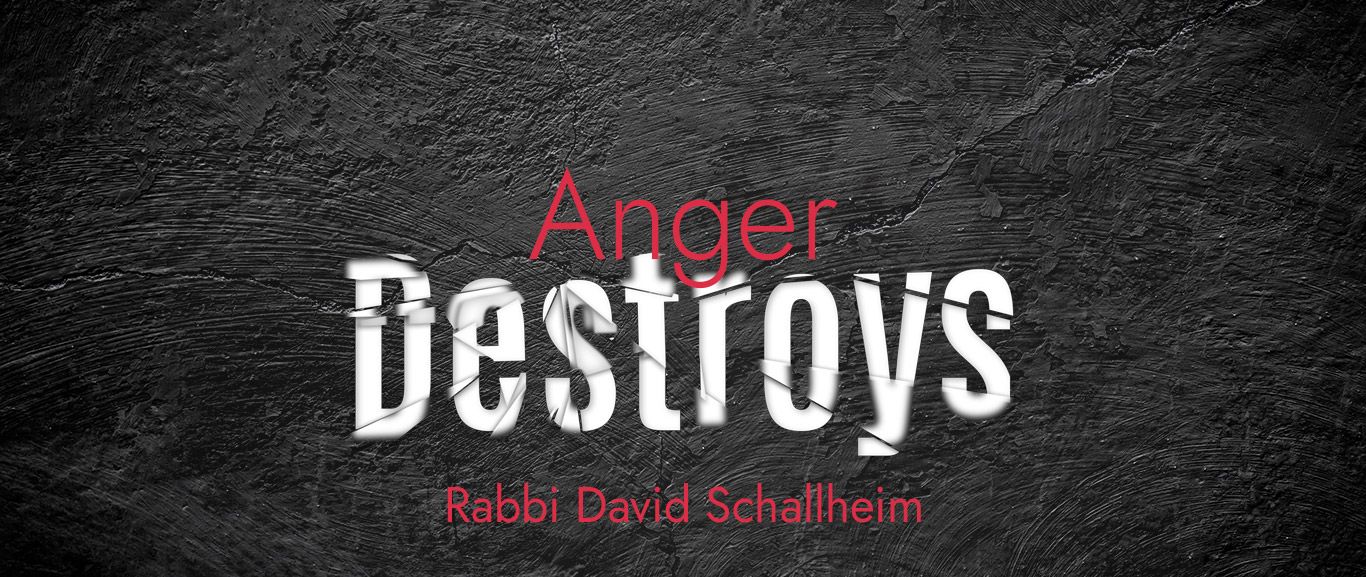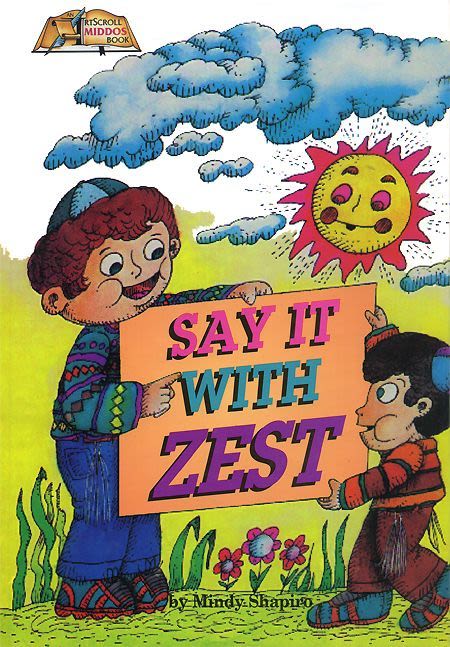
Matot-Masei: Anger Destroys
We can turn down the heat by emulating the humblest man who ever walked the earth, who became angry (and with good cause) only three times in forty years!

Moshe’s Errors
“Moshe [Moses] became angry with the officers of the army, the commanders of thousands and the commanders of hundreds, who had returned from the campaign of war” (Bamidbar 31:14).
Rabbi Shimon ben Lakish said a wise person who becomes angry loses his wisdom, as we learn from Moshe…” (Pesachim 66b).
The Midrash elaborates that the entire forty years that the Jews were in the desert, Moshe became angry three times. Each time he became angry he forgot the Halachah he was meant to teach the Children of Israel (Vayikra Rabbah 13:1)
The First Error – The first time Moshe became angry was when some of the Children of Israel left over manna from one day to the next, in direct violation of God’s command. Moshe rebuked them in anger: “And Moshe said to them, Let no one leave over any of it until morning. But some men did not obey Moshe and left over some of it until morning, and it bred worms and became putrid, and Moses became angry with them” (Shemot 16:19 -20).
As a result, Moshe forgot to teach them the laws of Shabbat:
“It came to pass on the sixth day that they gathered a double portion of bread, two omers for each one, and all the princes of the community came and told Moshe” (Ibid. 22).
Rashi explains: “They asked him, ‘Why is this day different from other days?’ From here we can deduce that Moses had not yet told them the section regarding the Shabbat that he was commanded to tell them, namely: ‘And it shall be on the sixth day that when they prepare what they will bring, it will be double of what they gather every day’ until they asked him this question.”
The Second Error – The second time was during the eight days of the Tabernacle’s inauguration, concerning a sacrifice that Aharon (Aaron) and his sons did not eat. “And Moshe thoroughly investigated concerning the sin offering he-goat, and behold, it had been burnt! So he was angry with Elazar and Itamar, Aharon’s surviving sons” (Vayikra 10:16).
Moshe erred because he became angry. Had it not been for his anger, he would have analyzed what happened and he would have realized that the Kohanim (the priests) had acted properly.
The Third Error – The third time concerned the laws of kashering (purging) the metal utensils taken as booty from Midian: “Moshe became angry with the officers of the army…” (Bamidbar 31:14).
Later on, we read: “Elazar the Kohen said to the soldiers returning from battle, ‘This is the statute that Hashem commanded Moshe” (Ibid. 21). Elazar went on to elucidate the laws of purging metal utensils. Why did Elazar speak instead of Moshe? “Since Moshe came to a state of anger, he came to err, for the laws of purging non-kosher vessels eluded him” (Rashi).
Moshe’s anger was undoubtedly justified. The purpose of the war with Midian was to inflict God’s vengeance against Midian for sending their daughters to entice the Jews to sin, with the express plan of causing the plague and destroying as many Jews as possible. The Jewish officers, however, spared the females who were a stumbling block to the Israelites.
Similarly, Moshe was justified in his anger against the people who left over the manna against God’s clear command not to leave it over until morning. His anger against Elazar and Itamar was also in accordance with the law.
Yet, despite his righteousness, Moshe forgot the Halachah. Rabbi Chaim Shmuelevitz explains that the essence of anger is that it consumes the wisdom of the one who becomes angry. It is not a punishment for the transgression of anger. It makes no difference if the anger is justified or not, the result of anger is the loss of wisdom. (Sichot Mussar, 5733, p. 75).
Anger
The trait of anger is one of the most contemptible of the negative character traits. The Vilna Gaon says that the two primary negative traits are anger and physical desires. The way to distance ourselves from anger is to learn the words of our Sages concerning anger.
The Sages compare getting angry to idol worship. “All kinds of Gehinnom [Hell] rule over anyone one who becomes angry” (Nedarim 22a). They have a few other choice statements to make about it as well.
However, even after we are convinced of anger’s negativity, we may still justify our anger as being for a “good cause.” Anger itself lends a hand in perverting our judgment and we justify our temper tantrums. The negative consequences of the greatest prophet’s entirely justified anger should give us pause to think about our own “righteous indignation.”
Staying Away from Anger
The following are pearls of wisdom culled from the wonderful sefer, Haseir Kaas M’Libeicha, Remove Anger from Your Heart, which is devoted to explaining the degradation of anger and giving practical advice to avoid it.
Rabbi Chaim Vital, the great disciple of the Arizal, said: “My teacher [the Arizal] was careful about anger more than any other transgression, even regarding anger for the sake of a mitzvah. I used to teach my younger brother, and when he did not apply himself as much as I wished he would, I would get angry with him. However, my teacher rebuked me very strongly about this. He explained: ‘All the other transgressions damage one particular limb, but the trait of anger damages the entire neshamah, soul, and makes it a treifah, a non-kosher entity’” (p. 165).
Rabbi Yosef Karo, the author of the Shulchan Aruch, was visited by an angel, known as the maggid, and he compiled much of the advice he received from the maggid in a sefer entitled Maggid Meisharim. The maggid warned him about anger:
“I have already informed you as to how much a man should behave humbly and never be angry about anything in the world. Go and learn from Moshe, the greatest of the prophets, who erred when he became angry. Therefore, never be angry about anything in the world! This applies even concerning the matters of Heaven for which you may need to appear angry at times and behave with this trait.”
Additionally, the maggid cautioned: “Be careful to distance yourself from anger… even if others do something or say something that you should be angry about… Therefore, be careful in all this and I will bring you many disciples and you will be very, very successful. You will be privileged to finish your sefer as you asked Hashem.”
In another place the maggid advised: “Be extremely careful to always behave pleasantly with others, and never be angry for any reason in the world. Never allow anger to rule over you even for the sake of zealousness in Hashem’s cause; this is a great principle” (p. 166).
Practice What You Preach
Rabbi Yisrael Salanter, the father of the Mussar Movement, worked his entire life to remove all traces of anger or annoyance. He said: “Almost all of the transgressions between man and his fellow are due to kapeidah, irritation over a ‘slight’ to one’s honor.”
No one ever saw him angry, although he was a very emotional person. If someone wronged him, he not only forgave that person completely, he would even strive to find a way to benefit him.
He taught that this was the way to resemble our Creator, as we are commanded: “And you shall walk in His ways.” Even when someone transgresses and angers God, He is not only patient and forgiving, but He even continues to supply the sinner with life and all his needs for sustenance (p. 179).
Rabbi Yisrael Salanter once shared a train compartment with an angry and impatient Jew. When Rabbi Yisrael lit his pipe, the Jew yelled: “Put that thing out!” Although it was a smoking car, Rabbi Yisrael immediately extinguished the pipe. When Rabbi Salanter opened the window to air out the car, the man screamed: “It’s freezing, close the window!” The unpleasant trip continued with Rabbi Salanter’s traveling companion constantly looking for opportunities to berate and insult his seatmate.
When they arrived in Vilna, a large crowd assembled to greet Rabbi Salanter, the gadol hador, the leading Rabbi of his generation. His traveling companion was mortified to learn that he had been ranting and raving at such a great rabbi. He made his way to Rabbi Salanter’s home to beg forgiveness.
Rabbi Salanter forgave him completely, and asked him why he came to Vilna. When he found out that the man wanted to be tested as a shochet, ritual slaughterer, Rabbi Salanter asked his son-in-law to test him. Unfortunately, the man was as ignorant as he was coarse. In order to be sure that he held no grudge against the man, Rabbi Salanter paid for him to be tutored in the laws of ritual slaughter until he knew them clearly, and then helped him get his first job!
Once there was a tzaddik who was as poor as he was righteous. The holiday of Succot was approaching, and he had no etrog, and no money to buy one. In fact, he did not have money for the special Yom Tov meals and new clothing either.
When shown a beautiful etrog on the eve of Succot, he decided that he had to have such a perfect etrog at all costs. His only valuable possession was a precious pair of Tefillin that he had inherited from his forefathers. He thought: “I’ve already fulfilled the mitzvah of Tefillin today, and I won’t use them for the next eight days of Succot. The mitzvah of etrog, though, is for today, because if I don’t buy it today, where will I have one for the entire holiday?”
He immediately sold his rare and precious Tefillin for a high price and used the entire sum to purchase the perfect etrog. Overjoyed with happiness, the tzaddik returned home.
“What are you so happy about?” his wife asked. The tzaddik told her the whole story. She was pained over the sale of the Tefillin, and her pain brought her to anger. She yelled at him angrily: “Why didn’t you buy something for us to eat on Yom Tov?” In a fit of anger, she picked up the etrog and threw it to the ground, rendering it completely invalid.
When the tzaddik saw realized that his hopes to fulfill the mitzvah were dashed together with his etrog, he said: “My Tefillin are gone. The etrog is gone. Should I also lose my temper? No! I won’t let myself become angry!” (Alufeinu Mesulbalim, p. 303).
We have to pull out the works of Mussar and Chassidut and work hard on building the proper perspective so that we can get a grip on anger. According to Rabbi Chaim Vital, both arrogance and anger have their source in the element of fire. When our ego is threatened, we become angry!
We seek to be in control, and when something happens that thwarts our desire for control, our ego is threatened and we become, so to speak, hot under the collar. We can turn down the heat by emulating the humblest man who ever walked the earth, who became angry (and with good cause) only three times in forty years!











Tell us what you think!
Thank you for your comment!
It will be published after approval by the Editor.